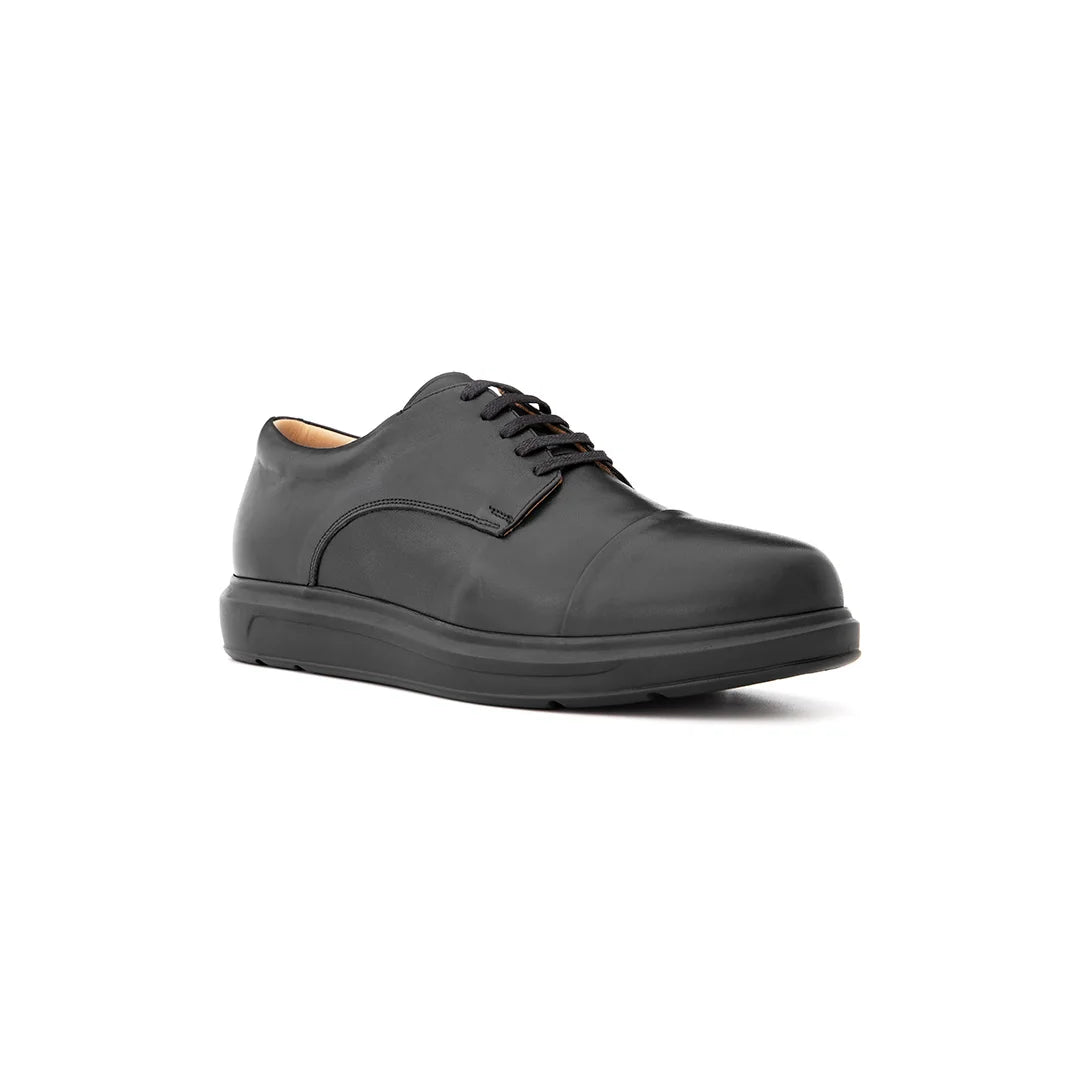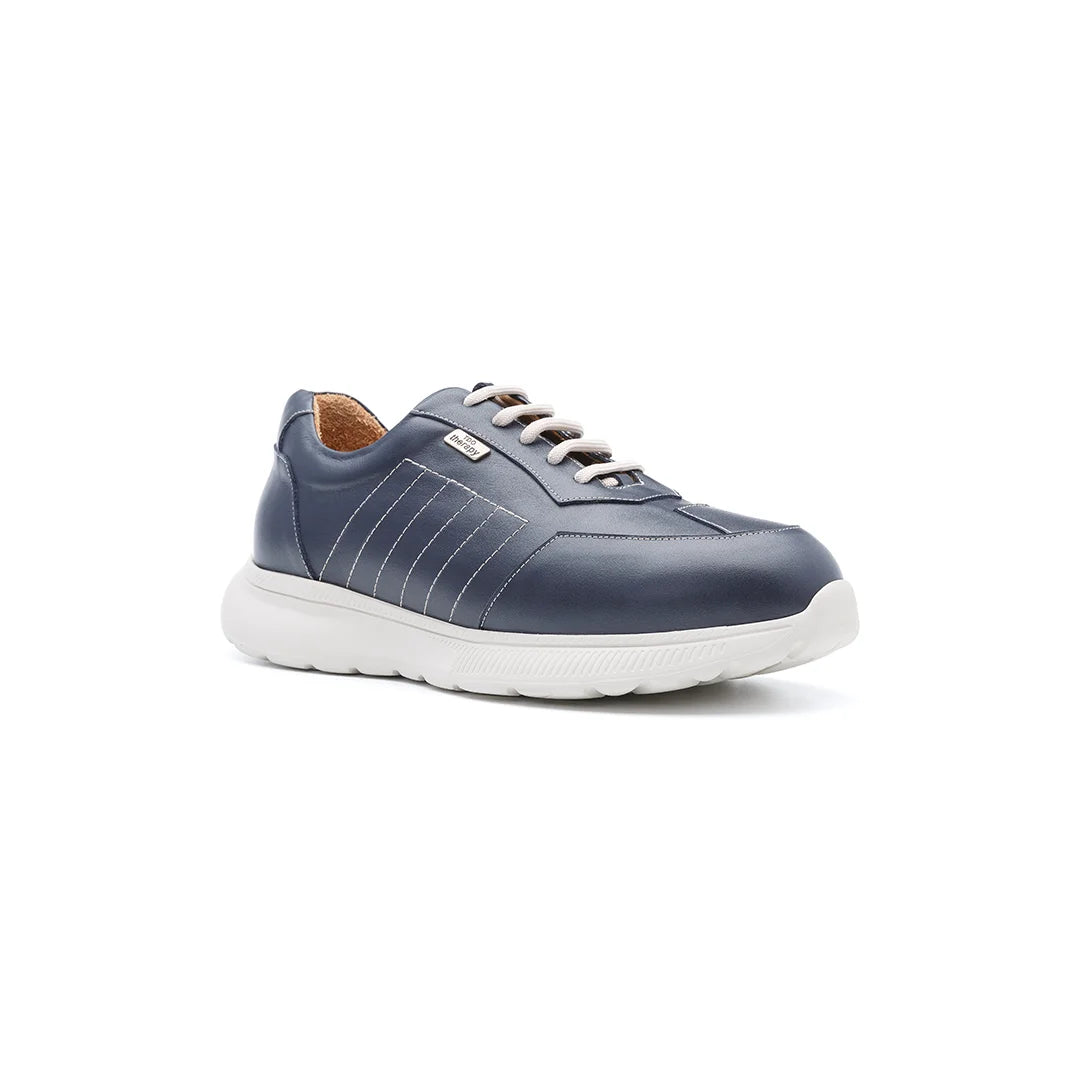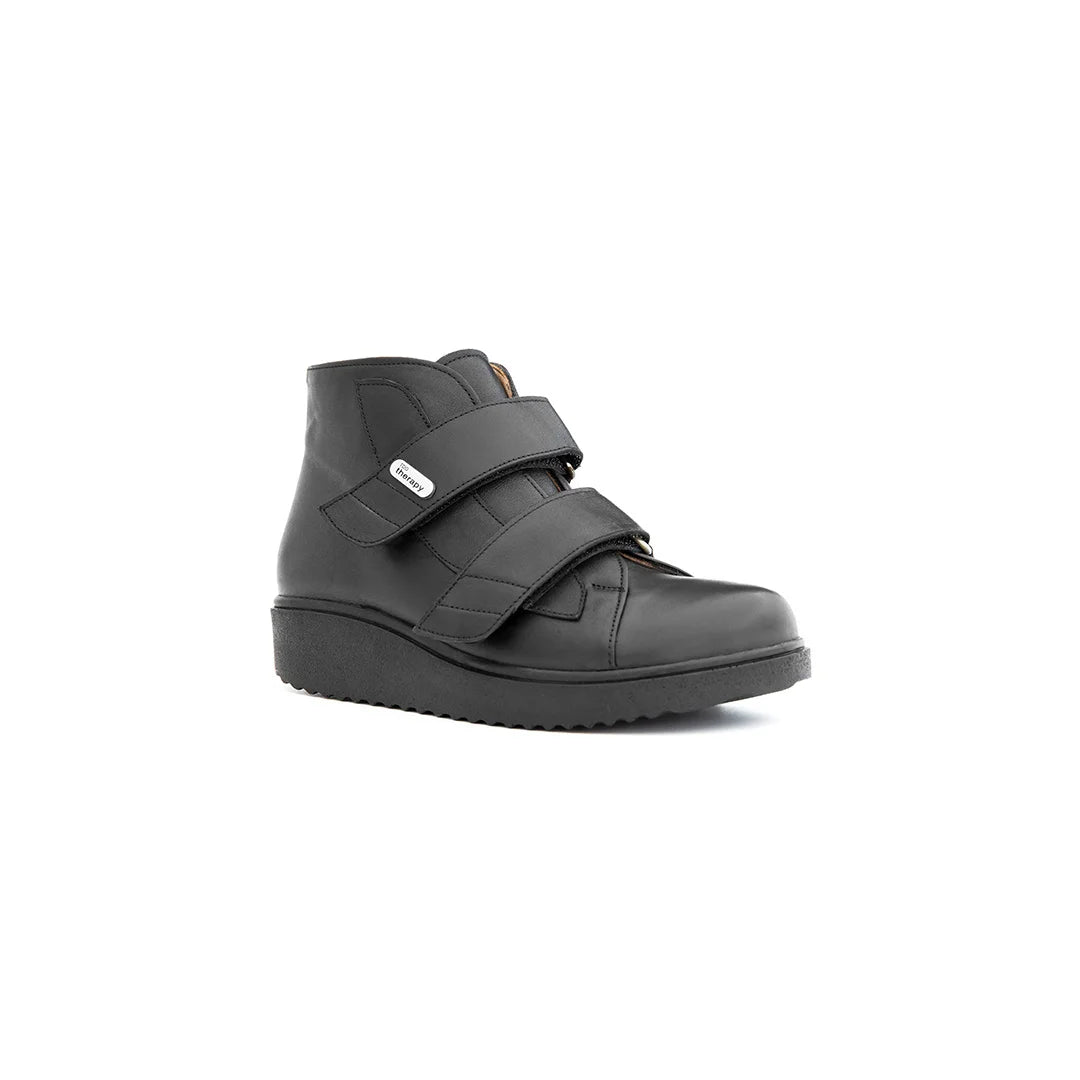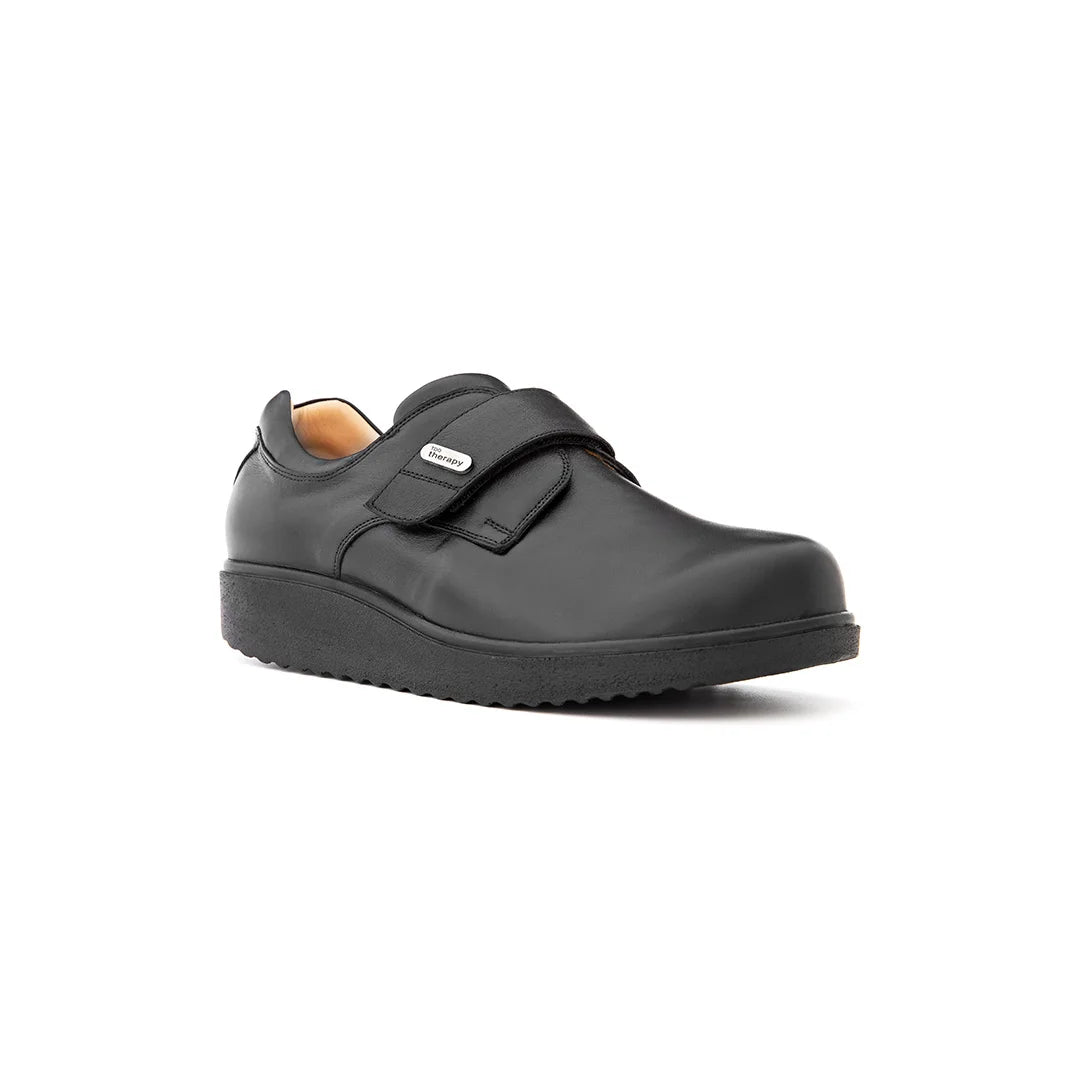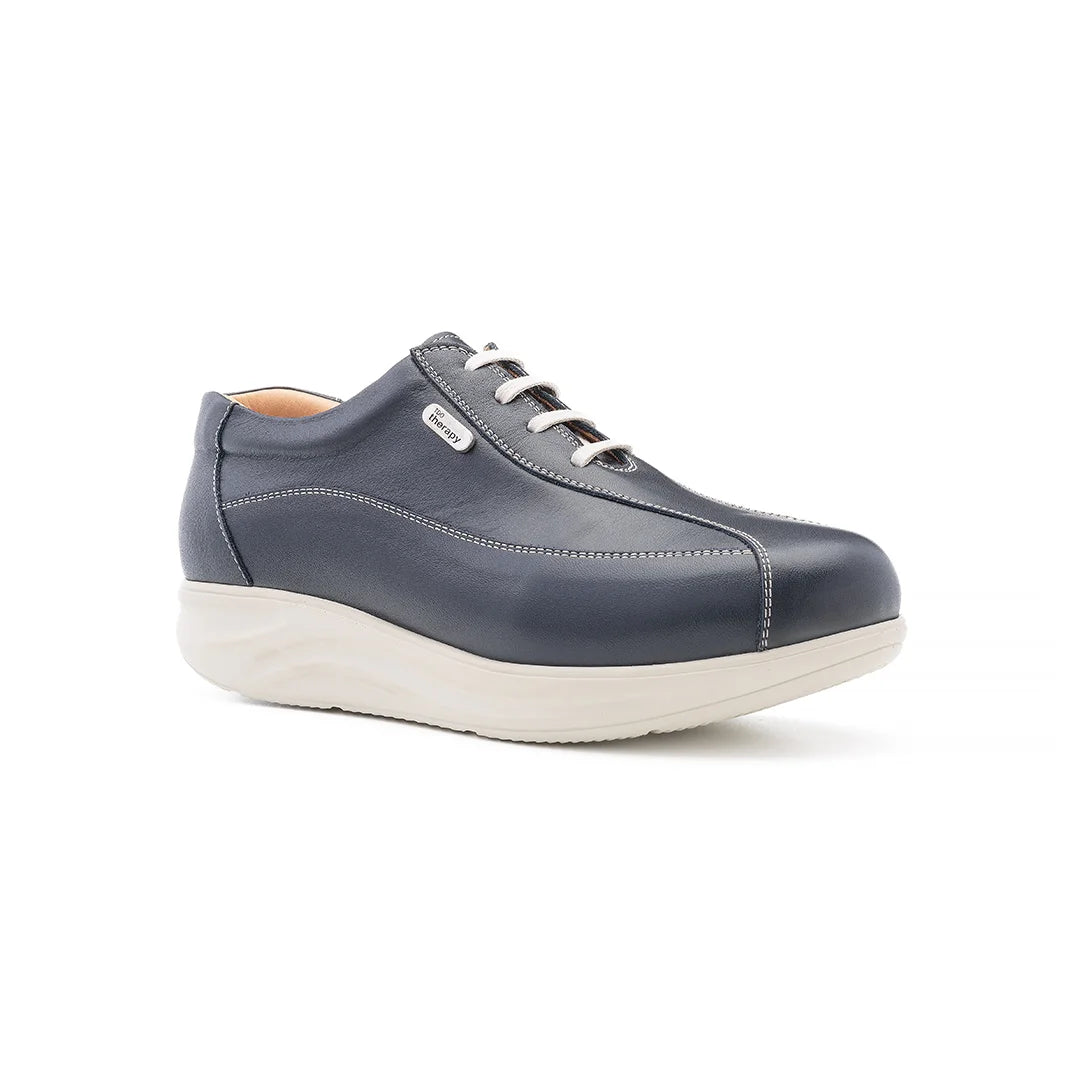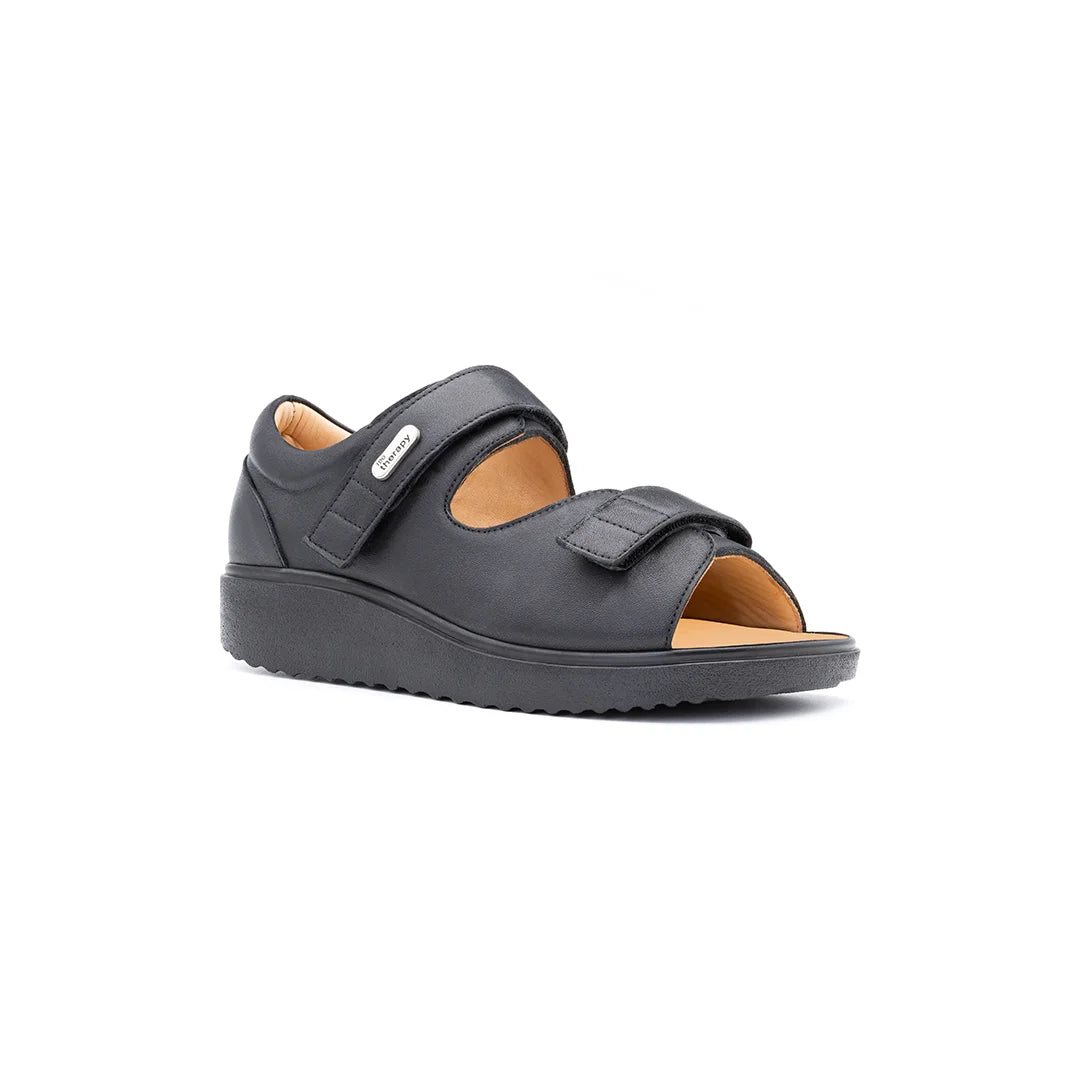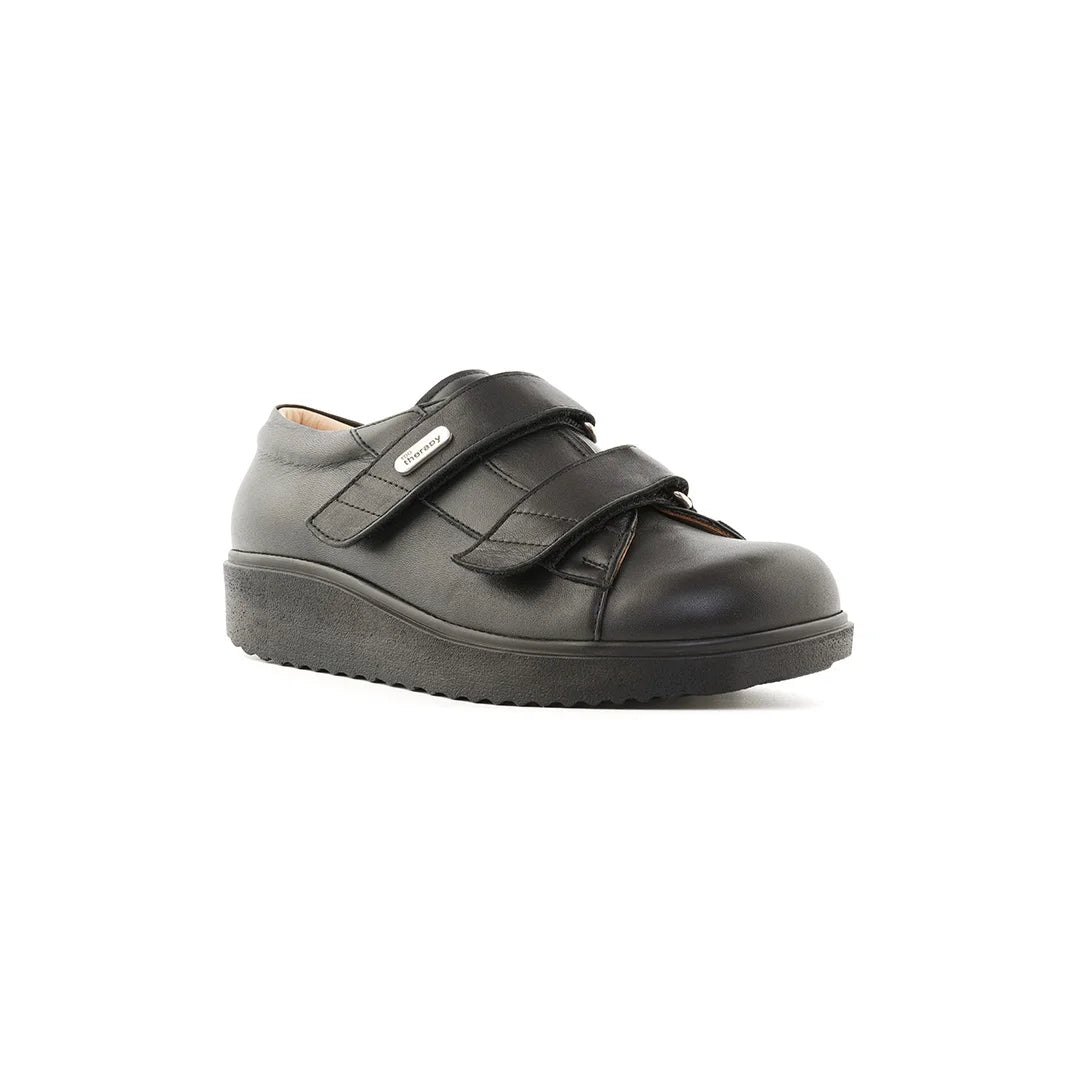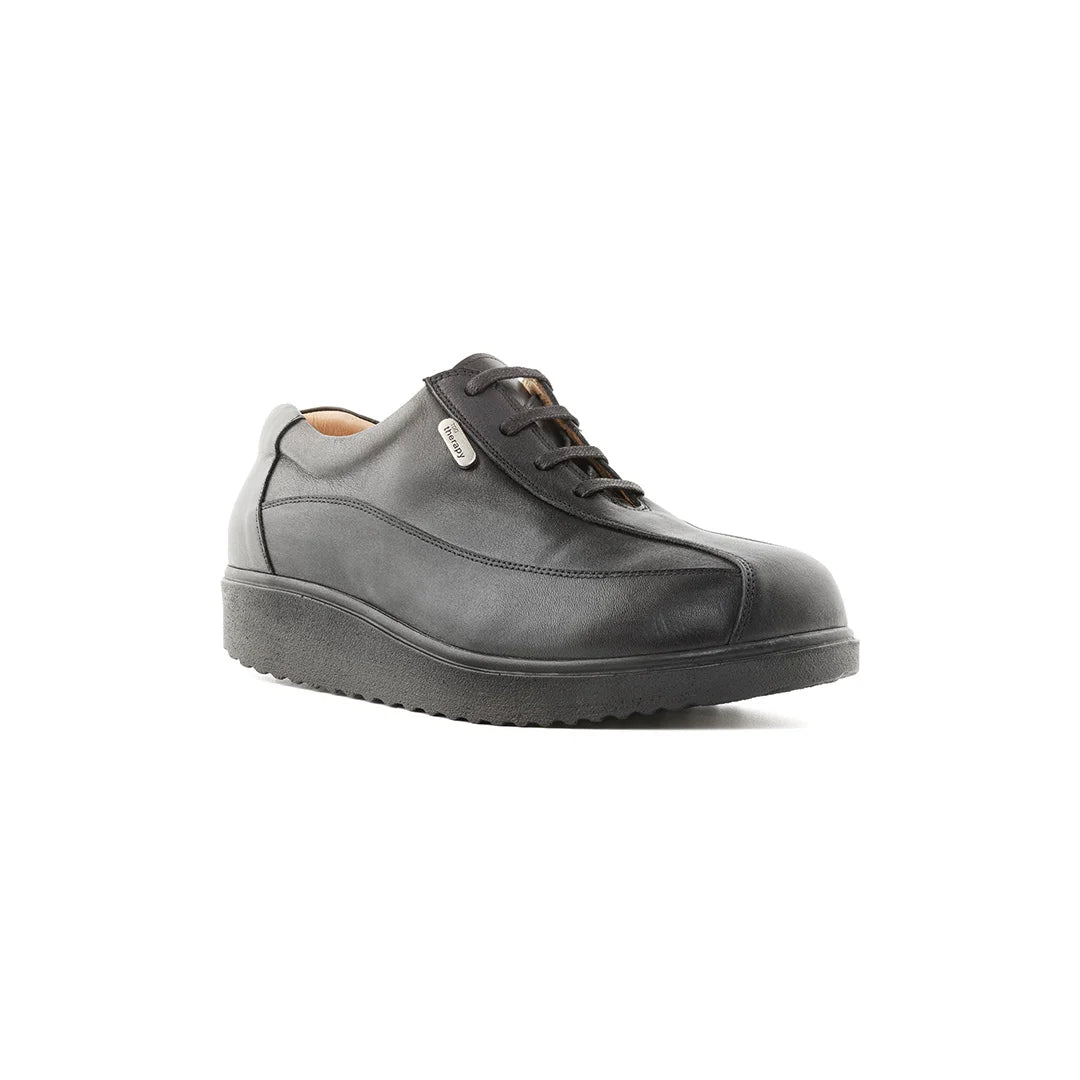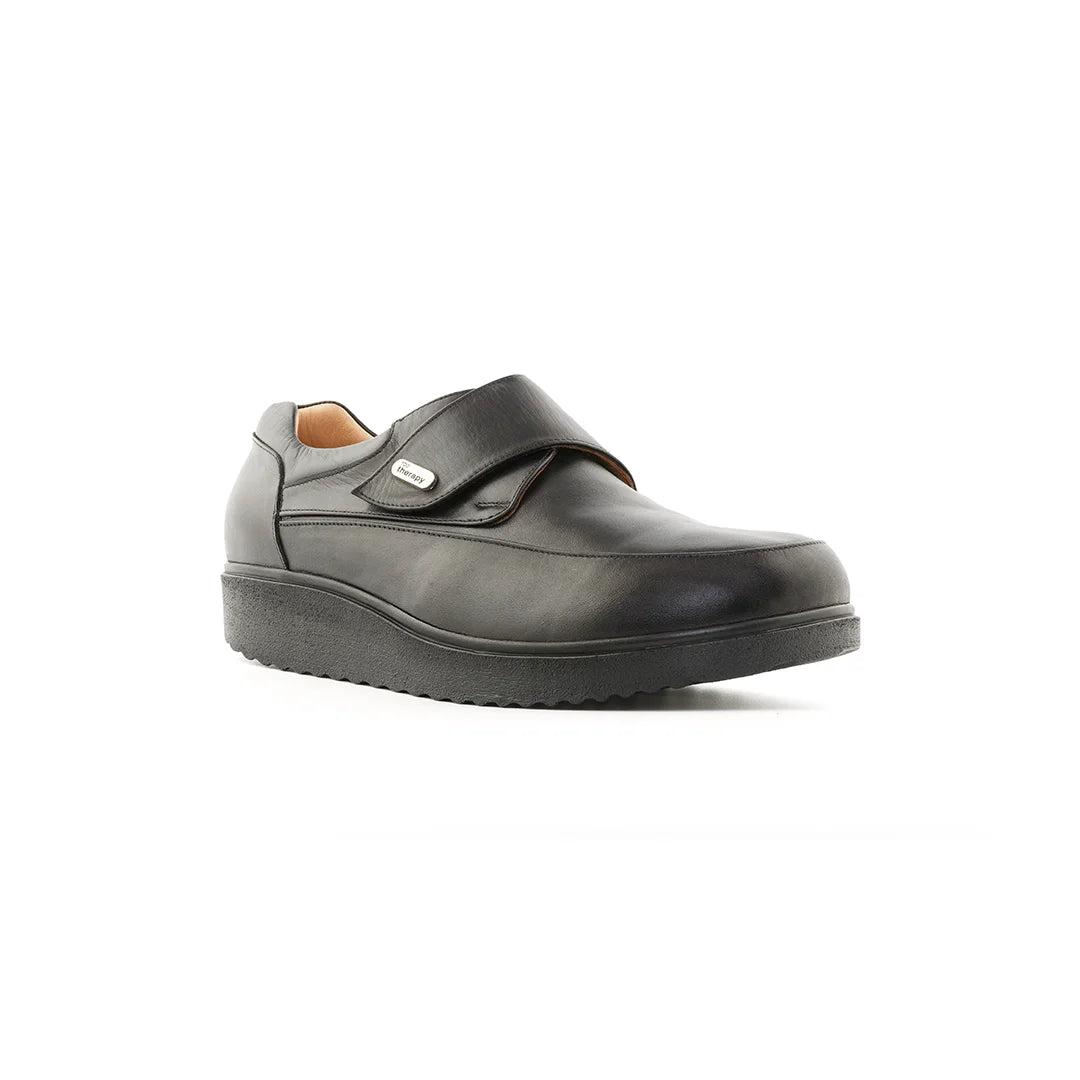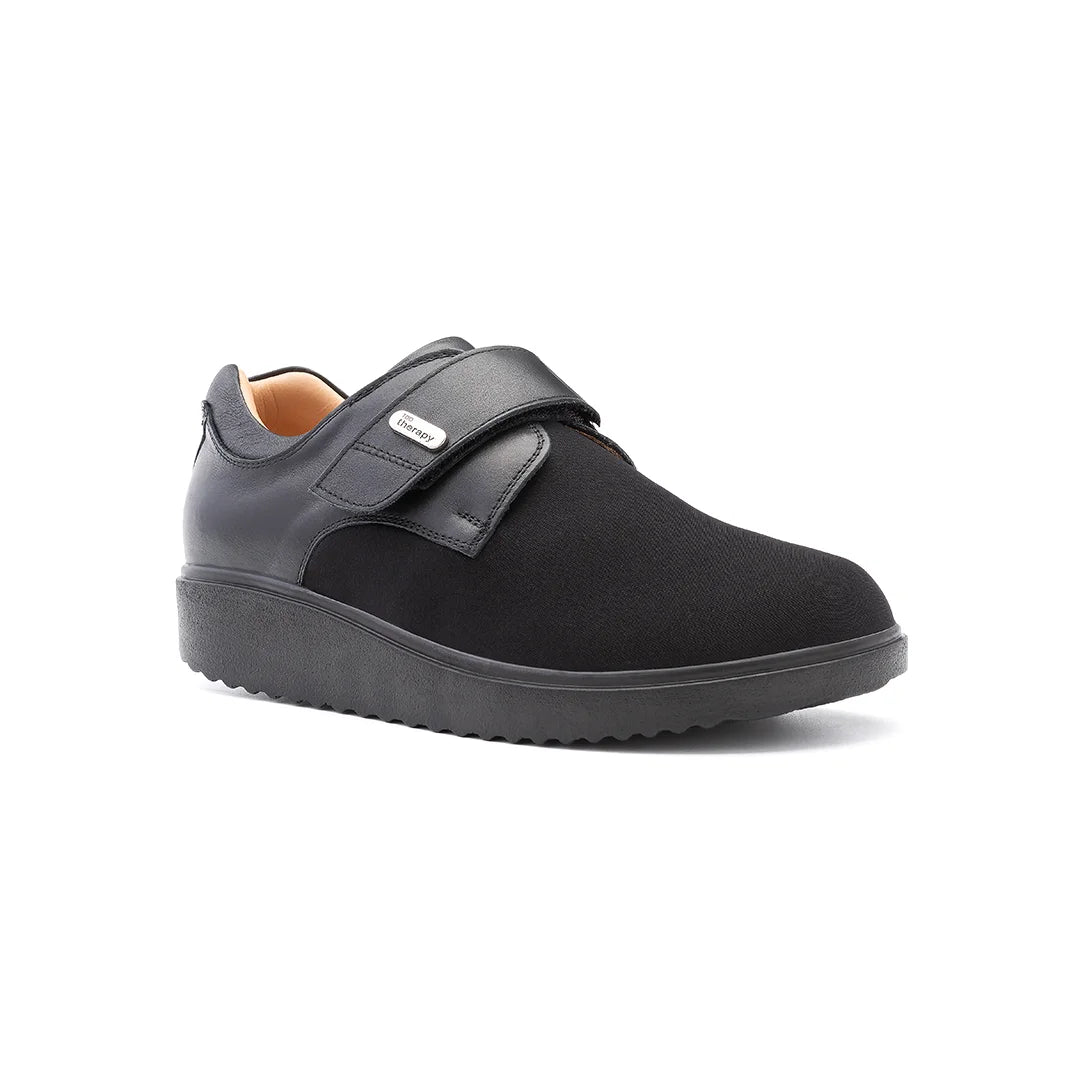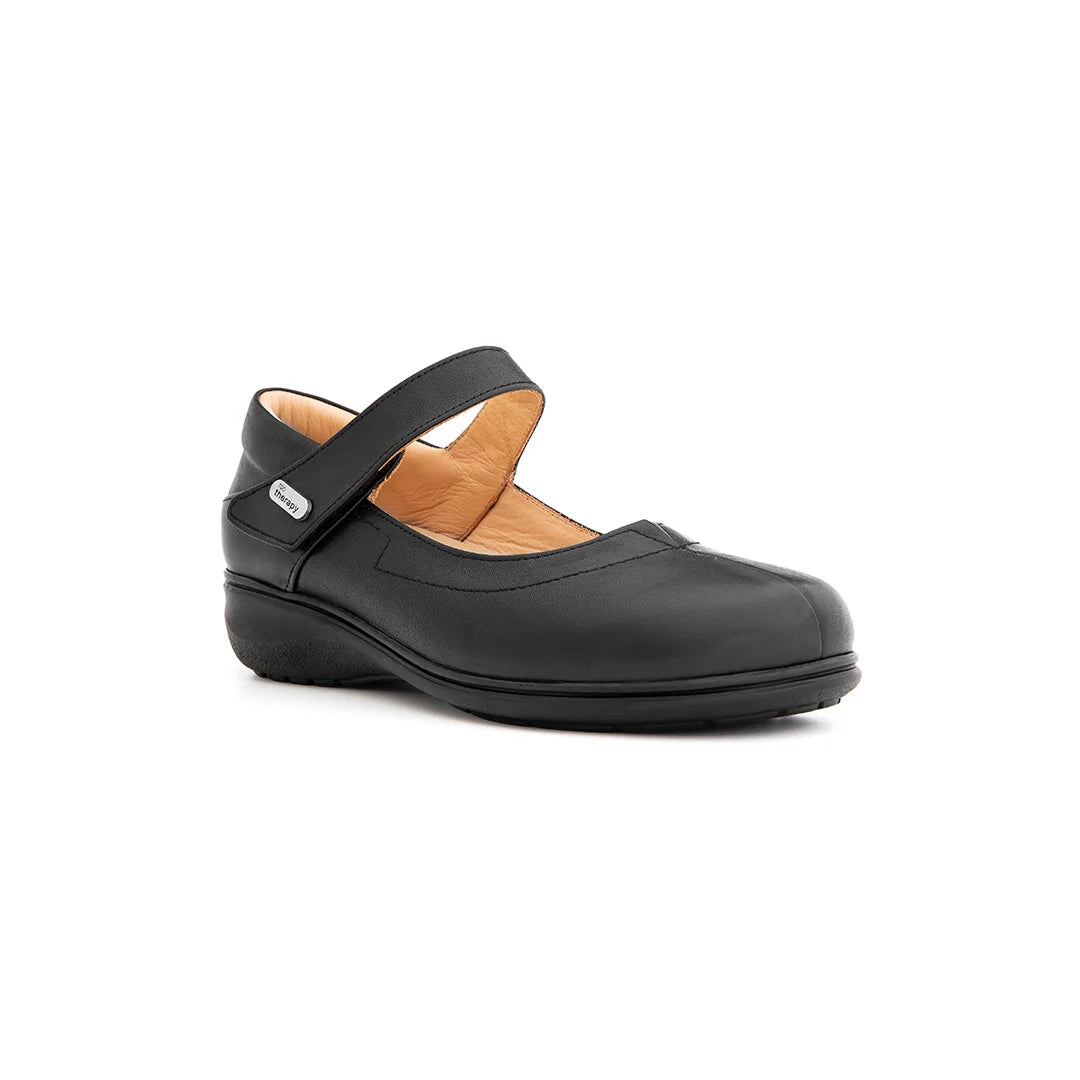If your feet feel one size in the morning and another by late afternoon, you’re not alone. Foot swelling — especially swelling that fluctuates throughout the day — is extremely common. Whether caused by age, long periods of standing, circulation issues, heat, or medical conditions such as diabetes or edema, the constant change in foot volume can make everyday shoes uncomfortable or even painful.
That’s exactly where orthopedic footwear makes a remarkable difference.
At TDO Therapy, our shoes are designed to adapt to swelling naturally, supporting your feet from the moment you wake up to the time you take your final steps in the evening. Thanks to adjustable features, wide fittings, and flexible materials, orthopedic shoes help maintain comfort, stability, and proper alignment — no matter how much your feet change throughout the day.
In this guide, we’ll look at why swelling happens, how it changes throughout the day, and the science behind orthopedic shoes that keep you comfortable around the clock.
Why Feet Swell — And Why It Gets Worse Throughout the Day
Morning: Stiffness, Tightness, and Reduced Mobility
When you wake up, your feet have had all night to rest — but circulation slows while you’re lying down. Many people notice:
-
Stiff toes
-
Mild morning swelling
-
Tenderness when stepping out of bed
For those with plantar fasciitis, arthritis, or diabetes, this early-morning stiffness can be particularly intense.
Afternoon and Evening: Peak Swelling
As the day progresses, pressure and gravity draw fluid downward into the feet and ankles. By late afternoon, many people experience:
-
Tightness around the forefoot
-
Heavier, fatigued legs
-
Shoes feeling smaller
-
Visible swelling around the ankle
-
Increased discomfort in the toes
Heat, long walks, and standing for extended periods can make the swelling even more noticeable.
Underlying Causes Include:
-
Reduced circulation
-
Age-related fluid retention
-
Diabetes
-
Edema or lymphedema
-
Arthritis
-
Vein insufficiency
-
Pregnancy
-
Certain medications
With so much change happening from morning to night, normal shoes can’t keep up — but orthopedic shoes can.
How Orthopedic Shoes Adapt to Daily Swelling
Orthopedic shoes aren’t just “comfortable shoes” — they’re engineered to adjust to the changing shape and volume of your feet throughout the entire day.
Here’s how they create consistent comfort, even as your feet fluctuate hour by hour:
1. Adjustable Closures (Velcro Straps) for Micro-Adjustments
This is one of the most important features of orthopedic footwear.
Velcro straps allow you to:
-
Loosen the shoe on hot afternoons
-
Tighten the shoe in the morning when feet are slimmer
-
Make small adjustments instantly without removing the shoe
-
Reduce pressure on sensitive areas
Unlike laces or slip-on styles, Velcro allows full customisation from hour to hour.
This is especially helpful for:
-
Swollen ankles
-
Edema
-
Diabetes-related swelling
-
Arthritis
-
People who struggle with bending or hand strength
TDO Therapy shoes use dual or triple Velcro straps for maximum adaptability.
2. Extra Depth & Wide Fittings for Expanding Tissue
Foot swelling usually expands the foot upwards and outwards. Standard shoes compress this swelling, leading to pain, pressure points, and skin irritation.
TDO Therapy’s orthopedic shoes offer:
-
Wide and extra-wide fittings
-
Extra depth to accommodate swelling without friction
-
Roomy toe boxes so toes can spread naturally
This prevents:
-
Circulation restriction
-
Pinching
-
Forefoot pressure
-
Bunion pain
-
Toe irritation
Your feet should never feel squeezed as the day progresses — orthopedic designs prevent that.
3. Flexible Natural Leather That Moulds to Foot Shape
Synthetic shoes are rigid and don’t stretch. Natural calf leather, however, expands gently with heat and movement — meaning it adapts perfectly to daily swelling.
TDO Therapy uses premium soft calf leather, known for:
-
Breathability
-
Flexibility
-
Temperature regulation
-
Gentle moulding around the foot
This allows the shoe to grow with your foot, then return to shape afterwards, without losing structure.
4. Memory Foam That Adapts Hour by Hour
Memory foam softens with body heat and pressure, meaning it adapts as your foot expands.
As swelling increases, memory foam:
-
Reduces pressure on sensitive skin
-
Provides even weight distribution
-
Prevents friction around the forefoot
-
Supports the arch as tissues relax
This custom response helps maintain all-day comfort, even during peak swelling.
5. Rocker Soles Reduce Pressure on Swollen Feet
When your feet swell, the way you walk changes — typically leading to shorter, heavier, and more painful steps.
TDO Therapy rocker soles:
-
Reduce forefoot pressure
-
Smooth the gait cycle
-
Prevent over-bending of swollen toes
-
Reduce fatigue in swollen ankles
-
Improve stability
A smoother gait = less stress on swollen tissues.
6. Seamless Interiors Protect Sensitive, Swollen Skin
Swelling stretches the skin and makes it more delicate. Seams, stitching, or rough interiors can cause:
-
Redness
-
Blisters
-
Skin irritation
-
Ulcers (especially for diabetic users)
Our seamless inner lining eliminates rough areas and protects against rubbing.
Perfect for:
-
Diabetes
-
Neuropathy
-
Edema
-
Elderly users with fragile skin
7. Lightweight Construction Reduces Fatigue
Swollen feet already feel heavy — shoes shouldn’t make them heavier. Orthopedic shoes use lightweight materials that reduce fatigue and make movement easier throughout the day.
Common Conditions That Benefit from Swelling-Adaptive Footwear
Orthopedic shoes are ideal for anyone whose feet change shape during the day, especially if they experience:
-
Edema
-
Lymphedema
-
Diabetes
-
Neuropathy
-
Arthritis
-
Pregnancy swelling
-
Poor circulation
-
Flat feet
-
Age-related swelling
-
Long-hours standing
-
Heat-related swelling
If your feet feel tight, heavy, or painful by late afternoon, orthopedic shoes can make a dramatic difference.
Daily Tips to Manage Morning + Evening Swelling
-
Elevate your feet for 10–15 minutes after work.
-
Wear supportive shoes indoors — avoid thin slippers.
-
Drink plenty of water — dehydration worsens swelling.
-
Avoid sitting or standing for long periods.
-
Choose breathable socks to support temperature control.
-
Loosen your shoes during the day when needed.
-
Avoid narrow or pointed footwear.
-
Replace shoes once cushioning breaks down.
Combined with orthopedic footwear, these habits reduce pain and improve mobility.
The TDO Therapy Difference
TDO Therapy shoes are handcrafted specifically for feet that change throughout the day. Every pair includes:
-
Triple-layer protection system
-
Natural calf leather
-
Memory foam cushioning
-
Seamless breathable lining
-
-
Medical rocker soles
-
Wide and extra-wide fittings
-
Dual or triple Velcro straps
-
Lightweight orthopedic construction
-
Roomy toe boxes
-
Removable insoles
These features make our footwear ideal for adapting to swelling — morning, noon, and night.
Frequently Asked Questions
Do feet really change size during the day?
Yes. It’s normal for feet to swell up to half a shoe size by the evening.
Are orthopedic shoes better for swelling than compression socks?
Compression socks help circulation; orthopedic shoes prevent pressure and friction. Many people use both together for best results.
Do rocker soles help swollen feet?
Absolutely. They reduce bending, pressure, and stress on inflamed tissues.
Should I size up for swelling?
With orthopedic shoes, you often don’t need to — the adjustable design adapts for you.
Final Thoughts
Morning to evening swelling is normal — but discomfort doesn’t have to be. Orthopedic shoes are designed to adapt to your changing feet, providing personalised comfort no matter what the day brings.
With adjustable straps, flexible leather, memory foam, wide fittings, and medical-grade rocker soles, TDO Therapy footwear supports swelling effortlessly and keeps you moving comfortably from the moment you wake up until bedtime.
When your shoes adapt to your feet, every step becomes easier.



